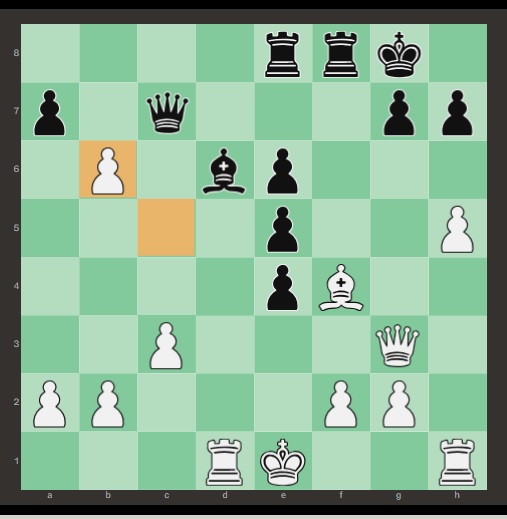There was a point in his second round match against India’s Arjun Erigaisi when grandmaster Hannes Stefansson (rated 2471) did a double take as he looked at his board. Somehow, his opponent had unleashed such chaos on the board that three of his pawns stood in a neat queue on three squares on the e file.
If having doubled pawns (two pawns on the same file) is bad on the chessboard, having tripled pawns is frankly inexcusable. And rare! So what if it had cost Arjun Erigaisi two knights to have his opponent’s pawns standing one behind the other.
Arjun Erigaisi had started attacking Stefansson’s king as early as on the 10th move, with his h pawn. By the 16th move, he held a considerable advantage on the evaluation bar, one which Arjun Erigaisi — christened by Magnus Carlsen as the Mad Man of the Chess Board in an interview with The Indian Express — had no trouble converting into a win.
Arjun Erigaisi thus gave the Indian team a 1-0 lead in the second round against Iceland, which was then converted to a 4-0 victory. Gukesh took down grandmaster Vignir Vatnar Stefansson (rated 2531) and Vidit Gujrathi defeated international master Hilmir Freyr Heimisson (2391). Harikrishna also ground out a win later to give India a 4-0 win, which secured the two games points. India chose to rest Praggnanandhaa in round 2.
“Arjun is just a complete mad man at the board. He wants to kill you in every single game. Has crazy preparation and plays extremely ambitiously and that’s what makes him very dangerous,” Carlsen had told The Indian Express in May this year.
Some of Arjun Erigaisi’s tactics in the first round against Jacques Elbilia, who is rated 2343 at present and is a FIDE Master, proved Carlsen’s point.
In the opening round match, there was one move that made even the engine evaluation bar’s jaw drop! With his 12th move, Arjun threw his bishop at Elbilia’s pawn, which had harmlessly parked itself on the b file. As Arjun Erigaisi made the move, the camera caught players from the adjoining board, Vidit Santosh Gujrathi and Ouakhir Mehdi Pierre, completely forgetting about their own battle and gawking at Arjun Erigaisi’s bishop, possibly wondering if the piece had been seized by a temporary bout of lunacy. Elbilia was largely impassive and hunched over the board studying his response, but Vidit and Pierre looked stunned. Arjun Erigaisi has chosen to sacrifice a bishop just to take a pawn. In the mathematics of the chess board, that simply did not add up: a pawn is worth just one point while the bishop is worth three.
But it was not a blunder. It was a calculated sacrifice. Tellingly, Elbilia’s advantage lasted all of two moves, with the Moroccan ill-advisedly capturing Arjun Erigaisi’s second bishop with his rook, in the process letting that piece get captured as well.
The fact that Arjun Erigaisi plays on the third board for India is one of the Indian team’s biggest advantages. Hikaru Nakamura, the top-ranked American chess player who has skipped the Olympiad, had rated India as the hot favorites, despite Team USA being the top seeds in the open section.
“India are very formidable. I do know that for India, Arjun will not be playing on Board 1, so if Pragg is in form and Gukesh plays decently, India will be very formidable. I don’t see any way in which this team is not the clear favourite,” he’d said on his YouTube stream.
Vantika overcomes time pressure to win
Vantika Agrawal (rated 2370) withstood extreme time pressure to defeat women’s grandmaster Teresa Rodshtein (rated 2159) as the top seeded Indian women’s team defeated Czech Republic 3.5-0.5 in Round 2 of the Olympiad with Divya Deshmukh and Harika winning and Tania Sachdev drawing.
At one point, Vantika needed to make 28 moves in 38 minutes. As the only player from the Indian women’s team who had not won her first round clash, she would have felt the pressure. But she played as accurately as possible, at one point pinning one of Rodshtein’s knights to her king, the other knight to her queen and forcing Rodshtein’s rook to stay frozen on the c8 square.




